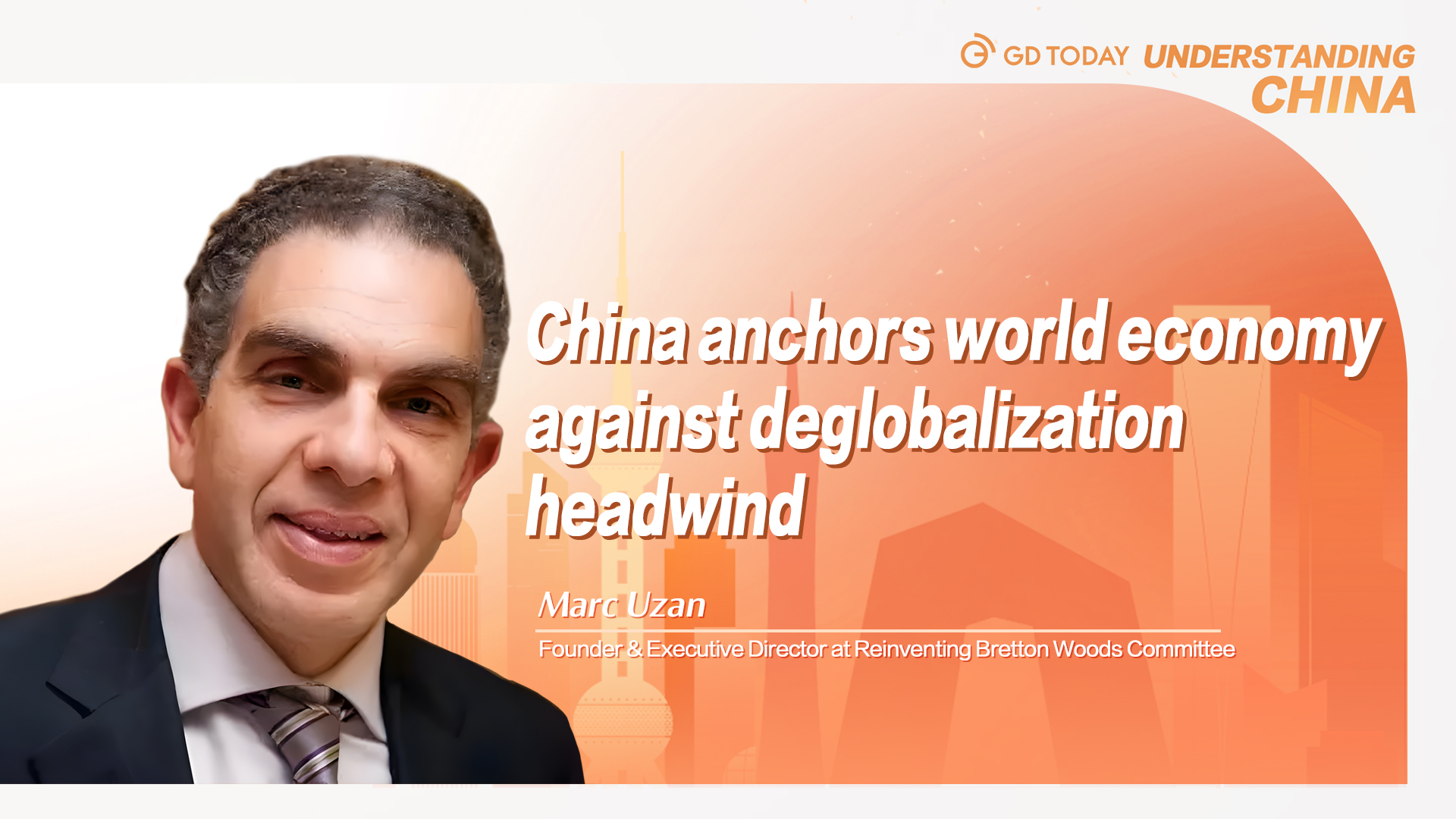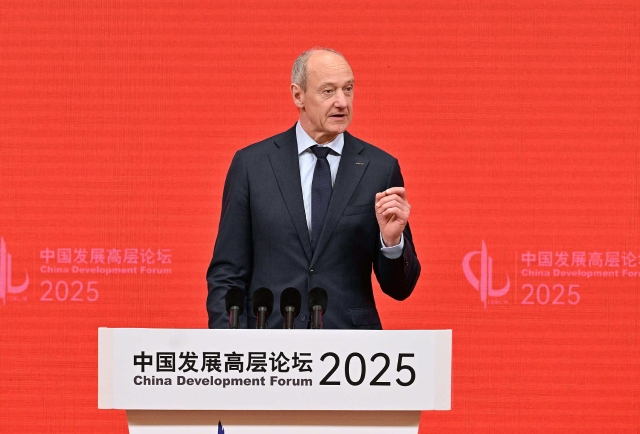
Heads of some 80 multinationals including Siemens, Apple, Samsung, and Mercedes-Benz have flocked to China for the China Development Forum (CDF) from March 23 to 24.
The annual event, hosted by the Development Research Center of China's State Council, has provided a platform for dialogue among the Chinese government, global businesses, academia, and international organizations to seek new opportunities worldwide.
Chinese Premier Li Qiang delivered a keynote speech at the opening ceremony, saying, "China will continue to welcome enterprises from around the world with open arms, further expand market access, actively address the concerns of businesses, and facilitate the deeper integration of foreign-funded enterprises into the Chinese market."
In an exclusive interview with GDToday, Marc Uzan, founder and executive director of the Reinventing Bretton Woods Committee, underlined that global development is at a very critical turning point due to a rising deglobalization trend led by Donald Trump's tariffs.
In his view, given the status quo, China should continue to be a responsible stakeholder in the global economy.

Roland Busch, Co-Chair of CDF, CEO of Siemens AG delivers an opening speech in Beijing, Mar 23, 2025. (CFP Photo)
European investments embrace China due to shared mutual beliefs
According to the Ministry of Commerce, in the first two months of 2025, 7,574 new foreign-invested enterprises were established nationwide, representing a year-on-year growth of 5.8 percent.
Some thirty European CEOs from sectors such as automobiles, energy, bio-medicine, and finance attended CDF this year. Also, from January to February this year, the actual investment in China by the UK and Germany increased by 87.9% and 54.7%, respectively.
Based on Uzan's observation, these increases are due to the shared beliefs between Europe and China—on globalization, multilateralism, and the fight against climate change.
Given the US's tariffs on Europe, as Uzan projects, the continent needs to rethink and rebuild the dialogue with China. "We share together three important things in the field of global economy and global finance," he outlined.
In his eyes, both China and Europe share the same values regarding global development: on the one hand, China and Europe embrace globalization and believe that multilateralism is a public good. On the other hand, China and Europe can join hands to tackle the fight against climate change, as the two sides can ensure the implementation of the Paris Agreement.
Amid the chaos at present, the rest of the world has to adjust to these new realities, as Uzan confessed. "But as a Chinese saying goes, when you have a crisis, you also have opportunities."
"This is maybe an opportunity to really project ourselves. We can use this historical moment to think about building an international financial system that can work for all," the founder of the Reinventing Bretton Woods Committee concluded.

Customers in Shenzhen International Electronics & Smart Appliances Expo in Shenzhen, Mar 21, 2025. (CFP Photo)
More big bazookas and innovation-based growth in China
"The Chinese government has been taking important steps recently, particularly to try to encourage consumption," noted Uzan.
In mid-March, China unveiled a special action plan, the most comprehensive package of policies to boost consumer spending in over four decades.
The plan focuses on both traditional consumption sectors such as housing and automobiles, and emerging categories such as AI-powered products, low-altitude economy, and silver tourism.
"To be able to consume, it's all about trust and confidence. We need a bigger bazooka," he added.
Additionally, the French economist lauded that China is becoming a real innovator in clean energy, which is the new engine for its economic growth.
He took electric vehicles (EVs) as an example. "If I look at the car industry, it was clearly the German car industry that came to China. Now China has a comparative advantage. It would now be the case for China to go to Europe and to settle factories there," he detailed.
Chinese EV manufacturer BYD has selected two sites in Hungary and Turkiye for production in Europe. The top EV firm based in Shenzhen is set to run its assembly plant in Hungary in October this year, and a second site in Turkiye will come online in March 2026.
The latest Global Energy Review 2025 by the International Energy Agency (IEA) unveiled that China was the leading driver of growth, accounting for some two-thirds of global electric car sales last year. EV sales experienced an annual growth rate of nearly 40%.
Reporter | Zhang Ruijun
Poster | Cai Junru
Editor | Yuan Zixiang, James, Shen He
















